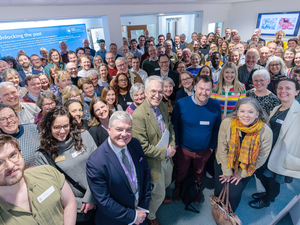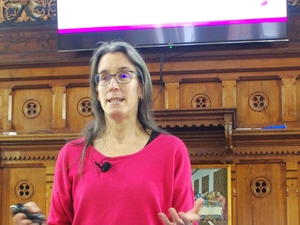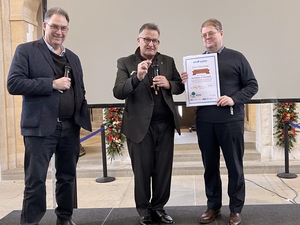Net zero carbon
The Church of England nationally has committed itself to be net zero carbon by 2030, which is a challenging target for national Church institutions, dioceses and parishes. This will involve working on our church buildings, vicarages, schools and church activities.
You can get an overview of our environmental programme and our drive to reduce our carbon footprint as a national Church by clicking here. There are many other resources that can help your church to become net zero carbon, including:
- case studies from other churches;
- a routemap to becoming carbon net zero (for dioceses, churches and schools);
- guidance for your church to help cut your energy footprint, including information about faculty permission;
- a two-page PDF showing a practical pathway to net zero carbon for churches;
- the chance to measure your carbon use via the energy footprint tool;
- the chance to conduct an energy audit of your church;
- free webinars to help you consider this important topic.
Net zero carbon action plan
Our Diocesan Synod in November 2023 agreed our carbon net zero action plan, which includes short-term, medium-term and long-term actions to help us to reduce our carbon emissions. You can read the full action plan here.
Ten simple steps to get your church started on its journey to net zero carbon
- Find some people to work together, this is a big challenge to do alone. Maybe you could team up with another church in your deanery, or get a keen volunteer from the community.
- Have a look at our resources and case studies for inspiration and advice.
- Register for Eco Church and have a look at the survey questions – they have lots of ideas for free, including many easy changes you can make.
- Start recording regular meter readings so you can see how much energy you actually use. Or get a smart meter to make it even easier!
- Fill in the Energy Footprint Tool (EFT) to get an annual carbon footprint report to share with your PCC and help get more people on board!
- Use the Church Heating Checklist to think about what where your church needs to be heated – is it the space or the people? All the time or just Sunday morning? Everyone, or just the choir?
- Use our new for 2025 Practical Guide to Net Zero Carbon for Churches to help you through lots of potential measures to save energy and reduce carbon.
- Get some expert advice. You can ask your DAC, your QI architect, or get an independent energy audit. This will give you a summary of the likely measures suitable in your church.
- Check what grants are available on the Church of England website.
- And finally have a nice cup of tea and celebrate everything you have done!
Watch the new short animation to find out what steps you can take on your net zero journey.
You can also take a look at our new Practical Guide to help you – this is packed full of tips and advice, a handy flowchart to help with heating solutions and a checklist for step by step actions you can take as a church.
Quick Wins grant
The Quick Wins grant scheme have now closed. If you were successful in obtaining a Quick Wins grant, please ensure that all of the work is done by the end of 2025.
We are waiting to hear about any future Quick Wins grant schemes.
News
- Parish Buying ran a webinar for churches interested in installing EV charging points in some of its parking spaces. You can watch the webinar on catch-up here.
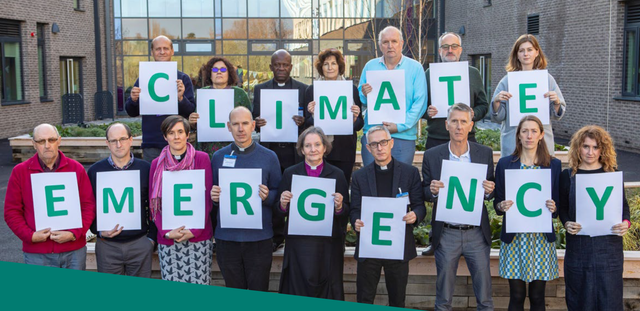
 Environment and net zero officers
Environment and net zero officers
Steve Collins, formerly the Deputy Diocesan Secretary of Guildford Diocese, is moving into the new role of Net Zero Carbon Programme Manager for the dioceses of Portsmouth, Guildford and Chichester from January 2024.
Steve’s role is enabled through national funding that is also paying for David Cain (pictured left), Diocesan Building Development Officer, to also take on the role of Diocesan Environment Officer.
The funding is also enabling us to create a part-time net zero carbon support officer to work with David and Steve. That person is Matt Lockwood, who is already working as our part-time communications officer.
The roles taken on by David and Matt are in addition to the diocesan environmental group that has been promoting and supporting parish initiatives on green issues. They will be helping us to measure the carbon consumption in our parishes, and to access grants, advice and support that can help our churches to reduce our reliance on carbon consumption.
Energy audits
Much of the challenge regarding turning out church buildings carbon-neutral revolves around our heating systems and the way we use energy to heat and light those buildings. We’ve asked the University of Portsmouth to do some energy audits on four specific churches, to give us an idea of what is involved in older and newer buildings, urban and rural settings, and with larger and smaller congregations. Why not download the audit from the church that is the most similar to yours and see what they say?
Practical tips to reduce your carbon footprint
Here are some practical tips to help your parish in its drive towards becoming carbon net zero, from other parishes across the Church of England:
Halo heating
Shadow Industrial recently installed halo heaters at St Peter & St Paul’s Church, Fareham, and produced the video above to show the journey from consultation to installation. Shadow’s chandeliers provide a lighting and heating solution that can be customised to the venue’s requirements. Rather than heating the while venue space, subtle infra-red heaters provide a comfortable and manageable heat directly to the people sat beneath them. This reduces the amount of energy used and wasted. Halo heating might be a suitable heating and lighting solution for your church – contact David Cain if you would like to explore this idea. Click here to find out more about Shadow’s infra-red heating chandeliers.
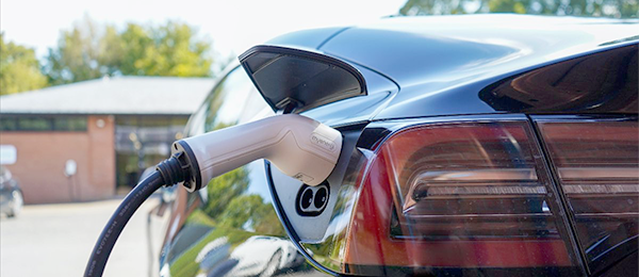
Electric Vehicle charging points
The Parish Buying team have announced a scheme to help churches generate income through the installation of Electric Vehicle (EV) charging points. There are requirements for taking part, which include being able to set aside at least 2 parking spaces and 24-hour access to the car park by the public. The charging points are managed by the operating company who rent the car park space from you. The electricity supply is taken from the national grid, so the church’s supply is not affected or used.
You can find out more about the scheme, and apply, on the Pariah Buying website here.

